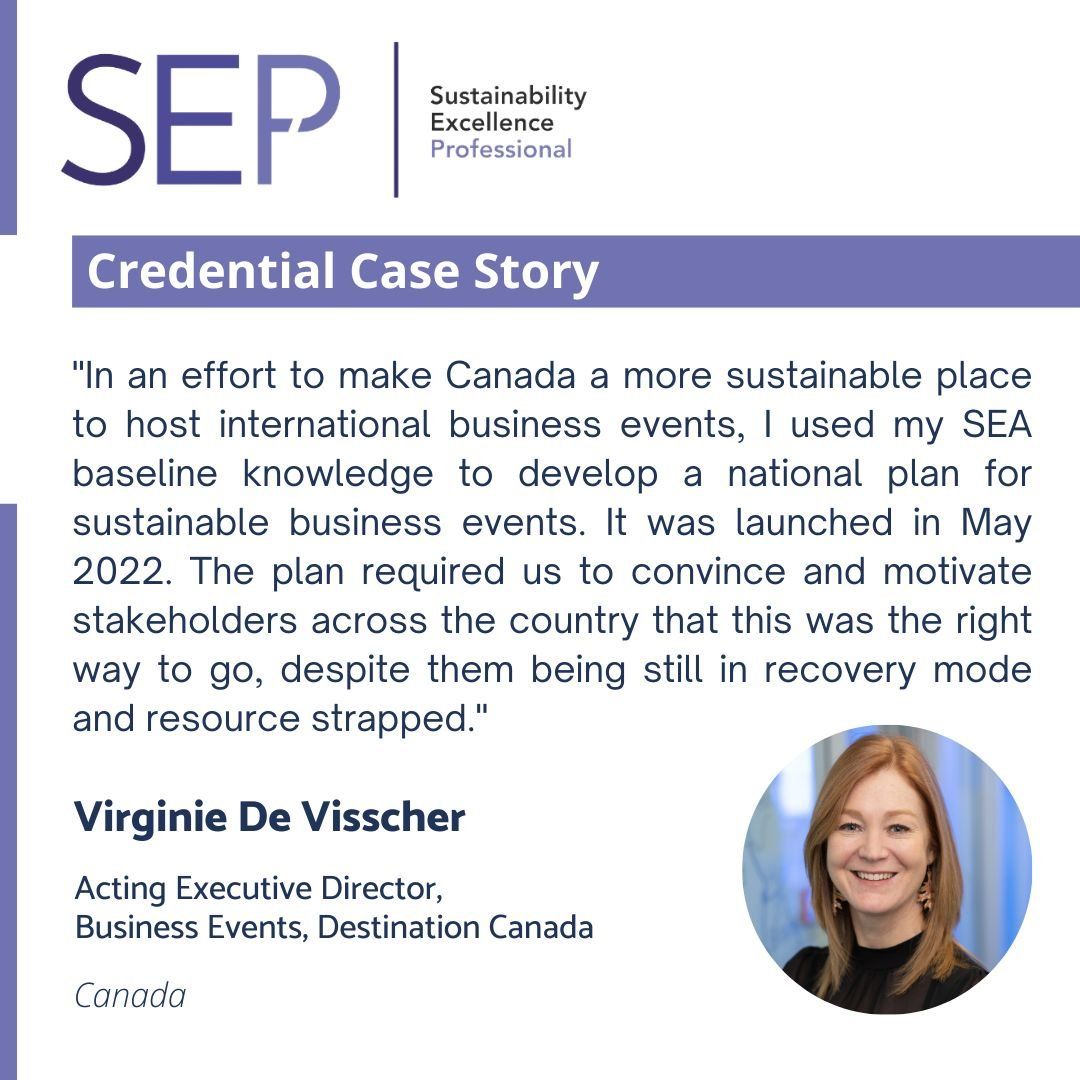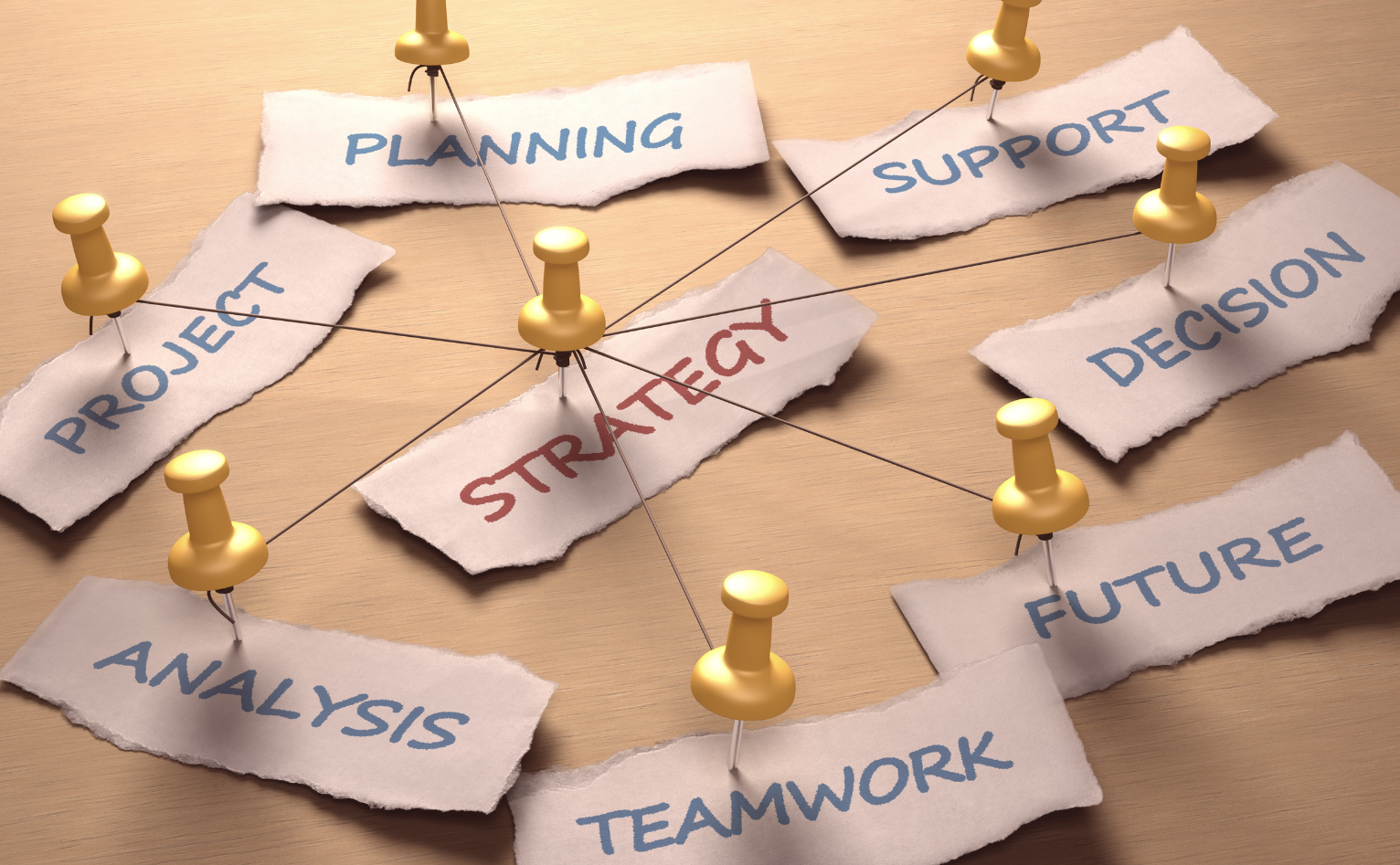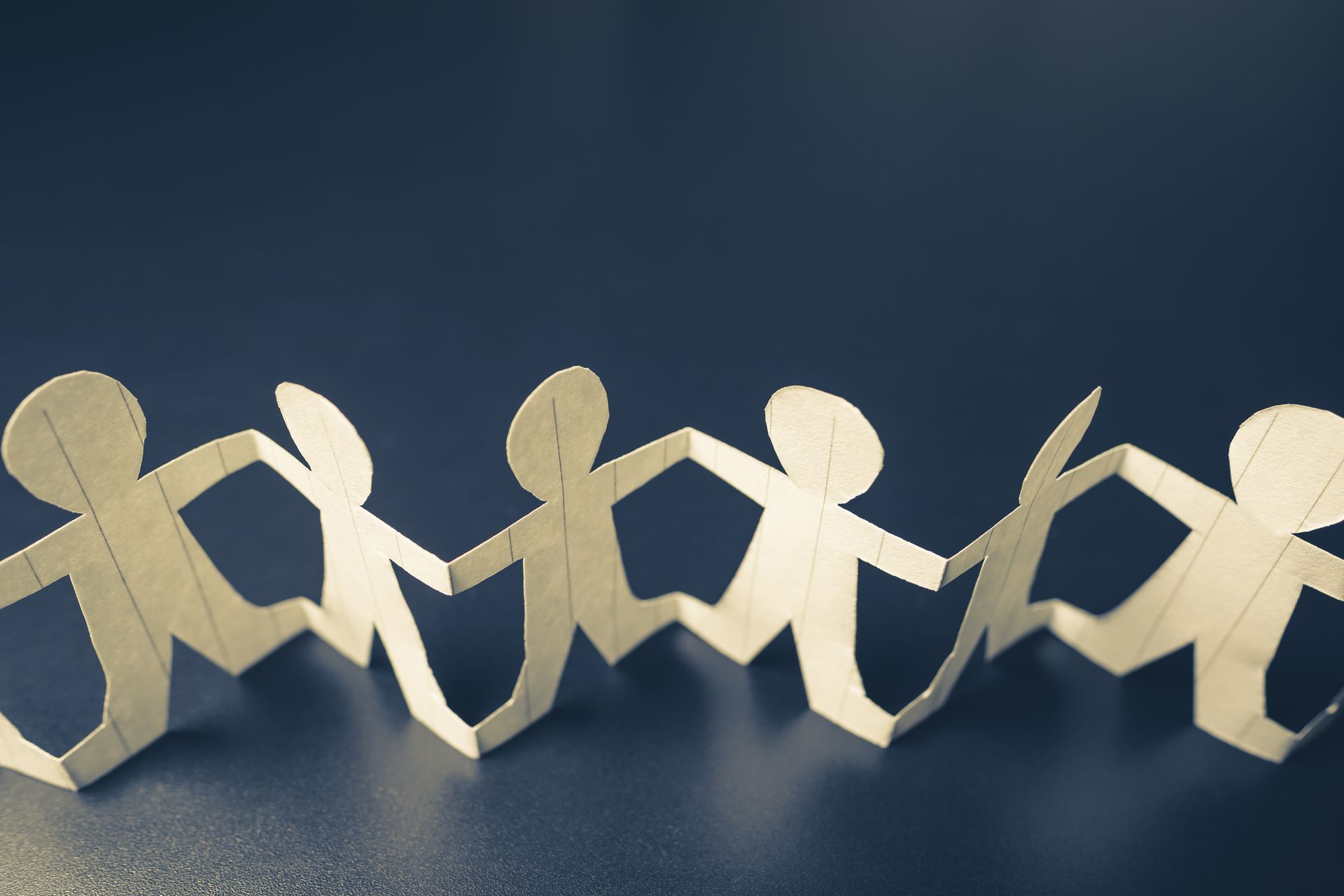What brought you to this moment in your career where the Sustainability Excellence Professional (SEP) made sense for you?
I’ve always been aware of our surrounding world and the impact that, as humans, we have on the world. As a mother of teenage boys, I’m conscious of the world that they are inheriting and the part that we all have to play to ensure they have a better future. In my professional career, my day job with Destination Canada is to promote Canada as a place to host international business meetings and events. Focusing on attracting global conferences that are aligned with Canada’s economic priorities, these conferences are a catalyst to economic growth. They drive talent attraction, trade and investment opportunities, research & development, increase innovation as well as move policy changes. These are strong economic benefits for host destinations and can also shape social changes for the better. That said, the movement of thousands of people around the world to a conference destination is carbon intensive and the environmental pillar of sustainability is at a disadvantage compared to the social and economic pillars.
The complete stop of our entire tourism industry with the pandemic was pivotal in my career. Realizing that without business events, our country would be suffering from the lack of all the benefits mentioned below, yet there was a way to come back more resilient and more climate friendly. I had to do something. That’s when I dove head deep into sustainability and educating myself, taking all the possible courses available to understand the challenges that we were facing as well as the potential solutions that could be uncovered. That led me to start my SEA and follow with my SEP.
That said, I did not start from scratch. A continuous learner, I am a bio-systems engineer and always been attracted by environmental as well as social aspects of work, with past work experience in driving ISO certification for coffee processing plants in East Africa, setting up organic cocoa plantations as well as developing a social wellbeing clinical program for women workers on the plant.
How are you putting the knowledge, skills and ability demonstrated in the SEP to work in your career (or work) today?
In an effort to make Canada a more sustainable place to host international business events, I used my SEA baseline knowledge to develop a national plan for sustainable business events. It was launched in May 2022. The plan required to convince and motivate stakeholders across the country that this was the right way to go, despite them being still in recovery mode and resource strapped. With stakeholder engagement knowledge, we managed to have 16 destinations across Canada to engage in the plan. That’s representation from all of our larger cities and many of our tier 2 destinations. The first phase of the plan was to provide our stakeholders a knowledge base to be able to talk about sustainability. When one does not feel comfortable talking about a subject because of lack of vocabulary or knowledge, it won’t drive change in behavior so we offered about 16 hours of training to our stakeholders on sustainability. Each one of our destinations had to create a ‘green’ team to champion their sustainability initiatives. These teams are composed of destination management organizations, convention centres, city representatives, hotel properties and more. It was incredible to drive change and observe these destinations coming together. The second phase of the plan, in which we are now, is that our 16 destinations are going through a benchmarking process with the Global Destination Sustainability Index (GDS-I). Aligned with the 17 UN SDGs, the 70 criteria of the GDS-I will allow our destinations to understand where they stand in regards to environment, socio-cultural and economic sustainability for their destinations, as well as in regard to governance. Only by understanding where we stand now, can we measure progress going forward. Finally the third phase of the plan, will be for our destinations to go through a storytelling masterclass. That will allow them to take all of the sustainability initiatives that they uncovered in their destination and tell their story to their business events clients for more sustainable meetings. Making it easier to host sustainable meetings in Canada and driving change elsewhere. What I learned through the SEP credential was that communication was crucial. From stakeholder engagement, to sharing the plan, to measuring and reporting, communication is embedded in all aspects of successfully moving the needle on sustainability projects. I’ve been applying my knowledge throughout.
For those starting out in the sustainability field, what advice do you have for them?
One person can drive a lot of change. Working in the tourism industry, there is nothing in my job title or my job description that has to do with sustainability. I am passionate about it and I drove it. A single person can motivate many others. Jokingly, my colleagues and partners call me the ‘sustainability police’ and no one would be caught near me with a plastic single use water bottle!
I would recommend just being authentic and following your passion.
Engage those around you, build support internally and externally. I could not have driven a national plan without support and some of the first things I did was to create an internal team of volunteers – by just asking my colleagues who had a passion for sustainability (I was surprised by the enthusiasm and number), and an external task force of sustainability experts (almost like a coaching team).
Continue to learn, it is always evolving. That creates credibility and expertise. And then just start, as I said, even if you are just one person and it’s not in your title, there is a lot that can be done.




